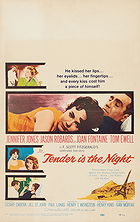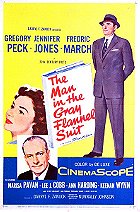Posted : 7 years, 7 months ago on 17 November 2017 08:44
(A review of
Let’s start with the good, Justice League is a leap above both Suicide Squad and Batman v Superman: Dawn of Justice, and about on par with Man of Steel. So clearly, WB/DC may be heading in the right direction with the material, finally, but it’s still bogged down by numerous problems. Chiefly, the insistence on sticking with Zack Snyder’s hollow imagery, clashing of tonal styles, and a general sense of things being rushed to a finish line instead of organically taking their time to happen.
The likes of Superman, Batman, and Wonder Woman didn’t need a series of origin stories to tell their tales prior to teaming up. They’re iconographic and well-known enough that everyone is familiar enough with them, but that still leaves half of the team to get introduced (Flash, Cyborg), Aquaman to get an image rehabilitation for the general public, and the concept of the Fourth World/New Gods to get time and development. That’s a hefty task for any film let alone one that runs just shy of two hours. They really needed to push this one back and roll out the solo films for Aquaman and Flash before jumping into the deep end. The New Gods and Fourth World material alone would be enough to justify its own movie.
As it stands, there’s a clearly visible sense of the characters treading water. Did you like Aquaman enough here? Well, his solo film is coming out in 2018 where we fully explore his background and develop his character. That isn’t to say that Jason Momoa isn’t an absolute joy in the role, because he is. They’re revamped the character to combine the brooding underwater barbarian and the adventure-loving hero into a surfer demi-god with a lust for stabbing Parademons with his pointed staff.
Nor does this mean that the Flash isn’t a blast to hang out with, as he provides the solid comedic relief of the team. Ezra Miller is clearly enjoying playing the hyperactive, sarcastic Barry Allen (hey, welcome! I’m tired of your TV show version being a mopey dick), but his character’s journey here feels half-formed. Miller and Billy Crudup are strong enough actors to make us care about their father-son dynamic, but it just feels like a lot of teasing for a Flash movie that may or may not come.
And that’s the problem with Justice League for all of its fun and entertainment, it feels like its keeping time and setting up better things to come in the shared cinematic universe. Gal Gadot’s Wonder Woman continues to be the MVP, Henry Cavill finally gets the chance to play a hopeful Superman, while Ben Affleck is in clear “I’m contractually obligated to be here” mode. Joss Whedon’s snarky additions to the film stick out most abundantly when stuck into the mouth of Affleck’s Batman, a character that has become far less interesting than the one we saw previously.
Zack Snyder’s ability to film beautiful images but complete indifference in the emotional connectivity that ties these sequences together is still a problem. Steppenwolf’s flashback attack, one prevalent enough to bring in the Amazons, Atlanteans, the tribes of man, the Greek gods, and the Green Lanterns (that was a fun cameo) is a gorgeous tableau that the rest of the film never quite lives up to. And the less said about the constant cutaways to a Russian family trapped in their shanty home while the Parademons flocked outside the better.
I didn’t hate Justice League, not by a long shot, but it’s a comedown from the glorious high that was Wonder Woman. It’s just at this point many of its failings are clearly endemic to the genre (bland villains being one, excessive yet unconvincing CGI being another) that rival Marvel are just as guilty of but better at papering over with tonally coherent and consistent entertainment. Justice League is serviceable, but these characters deserve better than that. At least the characters are engaging and fun here.
Yet I still can’t find it within myself to completely write off the DC movies. For all of their egregious errors and flaws, they’re at least trying to explore themes and ideas with these characters and their mythologies that are unique and distinctive even if not entirely successful.
 Login
Login
 Home
Home 95 Lists
95 Lists 1531 Reviews
1531 Reviews Collections
Collections
 0 comments,
0 comments, 







